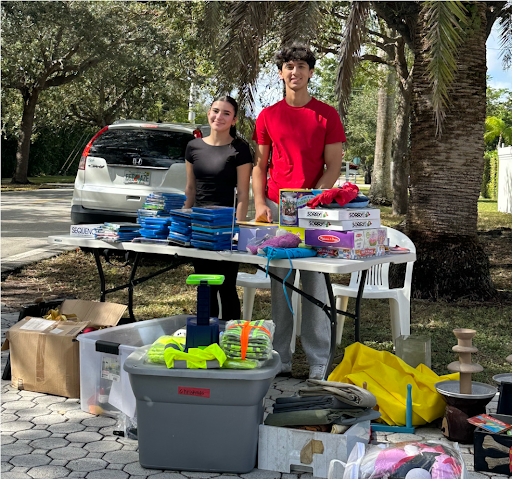During the winter and spring, outbreaks of numerous viruses are on the rise. The norovirus is a fast-spreading foodborne stomach virus that causes extreme gastroenteritis and inflammation of the stomach and intestines.
The most common symptoms of norovirus appear 12 to 48 hours after being exposed to it. Guaranteed signs of norovirus infection include Diarrhea, stomach pain, nausea, and vomiting. Symptoms like body aches, headaches, and fever may also appear. The illness lasts one to three days, but the virus is still transferable even after two or more weeks of the infected feeling better.
“The best thing a student can do if exposed is as simple as washing their hands because washing your hands minimizes the spread by a lot- it is the best thing to do. Another thing is, during an outbreak, is to avoid sharing food with other people, and be mindful of cleaning your areas,” Pediartiac doctor at the Jackson Memorial ICU, Dr. Jennifer Munoz Pareja said.
Outbreaks most commonly happen during November through April. According to the CDC, there are about 2,500 reported outbreaks in the United States. Outbreaks can infect anyone in any age range — the easily transmitted virus can easily be spread in schools due to infected people having direct contact with others, whether through sharing food, water, or touching infected surfaces.
To prevent contaminations of norovirus, thoroughly and frequently washing your hands, and cleaning contaminated surfaces is vital. Restraining from sharing foods, utensils, and water with people is recommended. The foodborne virus commonly shows up in fruits, vegetables, and shellfish, so making sure your produce and seafood are thoroughly cleaned and cooked is also recommended.
There is no vaccine or medicine for norovirus because there are varying different types of it. Over-the-counter antibiotics will not treat infection because norovirus is not a bacteria; it is a virus. Antibacterial disinfectants and sanitizers will also not treat norovirus. The best thing to do when infected is to quarantine. It is common to get dehydrated while being infected, so drinking water will treat the loss of bodily fluids during the virus.













